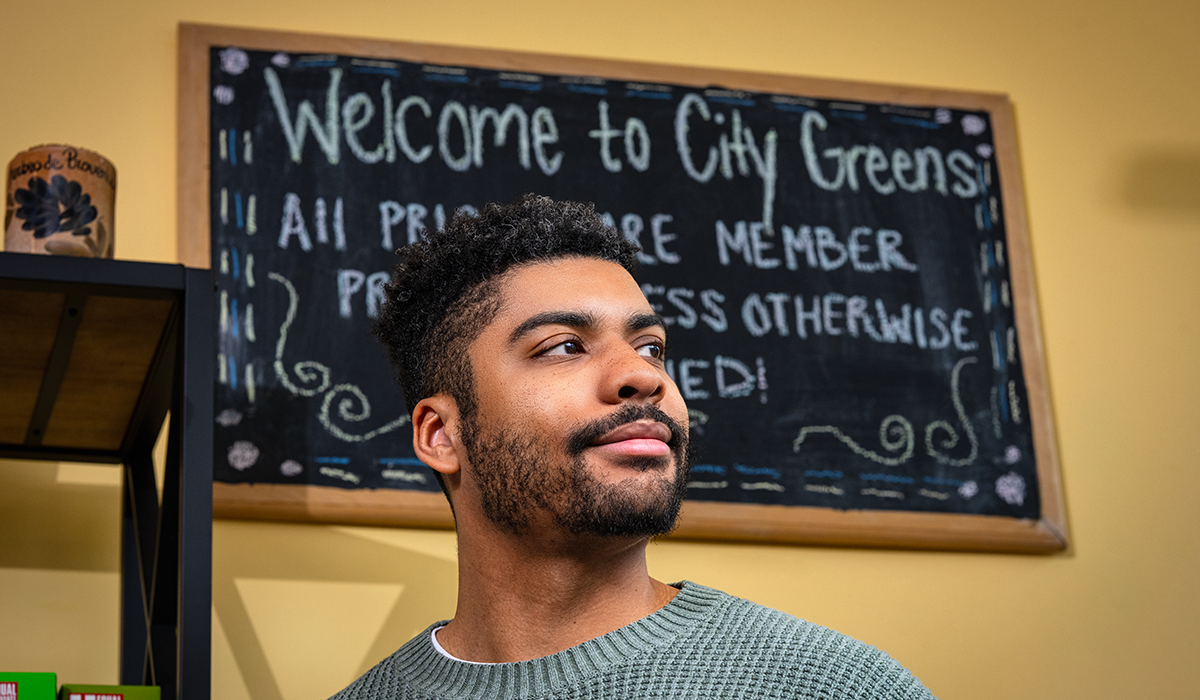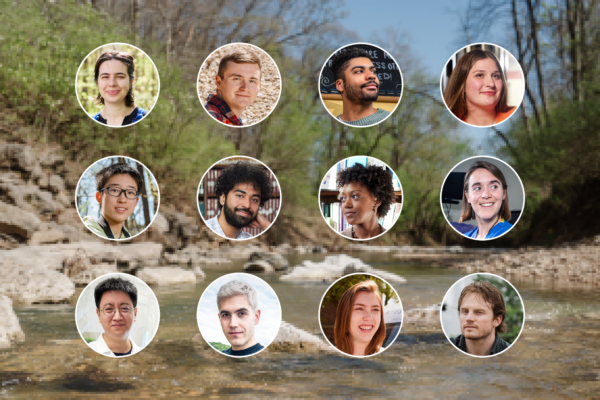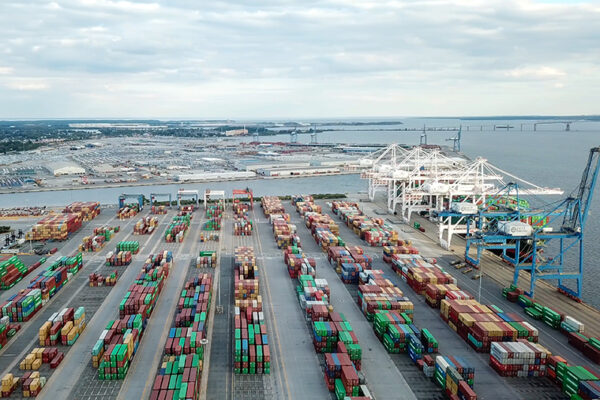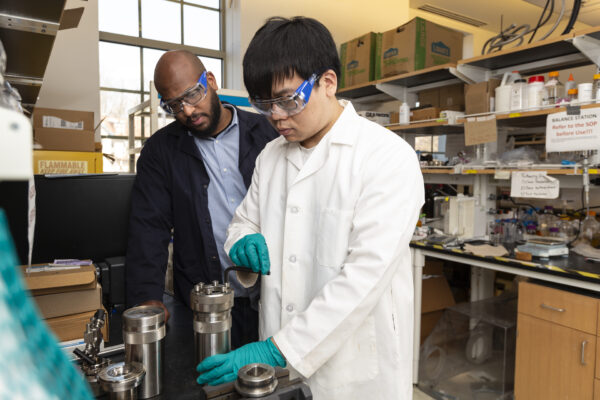A self-described “dreamer,” Franklin Taylor caught the entrepreneurship bug long before he stepped foot on campus at Washington University in St. Louis. He started his career at a health-care equipment startup and founded Our Future Reads, a Chicago-based nonprofit that provides donated books to adult readers. To date, the organization has reached more than 9,000 people.
“My main goal — my purpose in life — has always been to make a positive impact on people. It’s not about making money,” said Taylor, who is set to graduate in May with a master’s in business administration from Olin Business School. “Our Future Reads taught me that I could build a successful organization. I wanted to do it again, only bigger.”
As an MBA student, Taylor has not only honed the necessary skills to be a successful entrepreneur, he also has collaborated with mentors and fellow students to take his idea — reducing food waste — from concept to a promising startup business, Sustain-a-Plate.
“At WashU, I was constantly surrounded by creative and innovative people. Being in a community like this pushes you to work harder and go further with your ideas,” Taylor said.
Below, Taylor talks about his experience building his company at WashU and what the future holds.
What is Sustain-a-Plate, and how will it reduce food waste?
Grocery stores nationwide throw out 16 billion pounds of expired food every year, which contributes 30% of the food waste in landfills and is a major contributor to greenhouse gas emissions. This also hurts stores’ profitability. On average, individual stores lose $3 million in revenue annually as a result.
Sustain-a-Plate helps grocery stores sell their close-to-expiration date food items through a dynamic dual pricing model. Our smart barcodes store key data elements of individual items at every stage of the supply chain, enabling grocers to better understand products’ life cycles and inventory and make data-driven decisions.
Take milk, for example. When you go to the grocery store, most people reach to the back to grab the bottle with the longest expiration date. The problem is that at some point, the milk cartons that sit on the shelf must be thrown away. With our tool, grocers could incentivize customers to choose cartons with shorter expiration windows, alleviating waste and increasing profitability.
Tell us about the process of creating Sustain-a-Plate.
From the beginning, I knew I wanted to work on a solution for food waste. I looked at everything from using composting to create alternative fuels to meal kits to repurpose extra food. The question was, at what level of the supply chain could I make the most impact? Ultimately, I found that there was an unmet need in grocery stores.
The idea began to take shape last fall in The Hatchery. After pitching my idea to the class, undergraduate students Anna Larizza, Kelsey Kloezeman, Tanvi Jammula and Jason Ti, in the computer science master’s program, joined my team. We worked on Sustain-a-Plate throughout the semester and ultimately won the Olin Cup, which is awarded to one startup idea each semester. We’ve continued to work together this semester in The League.
What’s next?
I had a job lined up, but I’ve decided to go all in on Sustain-a-Plate. The decision came down to: Would I regret not taking the leap on this decision later in life? And I would. There will be more job opportunities down the road, but this is my opportunity to take a chance on my dream.
There’s a lot of promising things happening for Sustain-a-Plate right now: We were a finalist in Olin’s 2024 Big IdeaBounce, sponsored by Poets & Quants, and recently finished as a semifinalist in the Heartland Challenge in northwest Arkansas. These contests provide valuable feedback and introductions to industry experts. We also have two pilot programs lined up with local grocery stores and have the backing of an angel investor. I’m excited to see what the future holds.
Update: In 2025, Sustain-a-Plate officially changed its name to Zaiko. Learn more about the company here.



